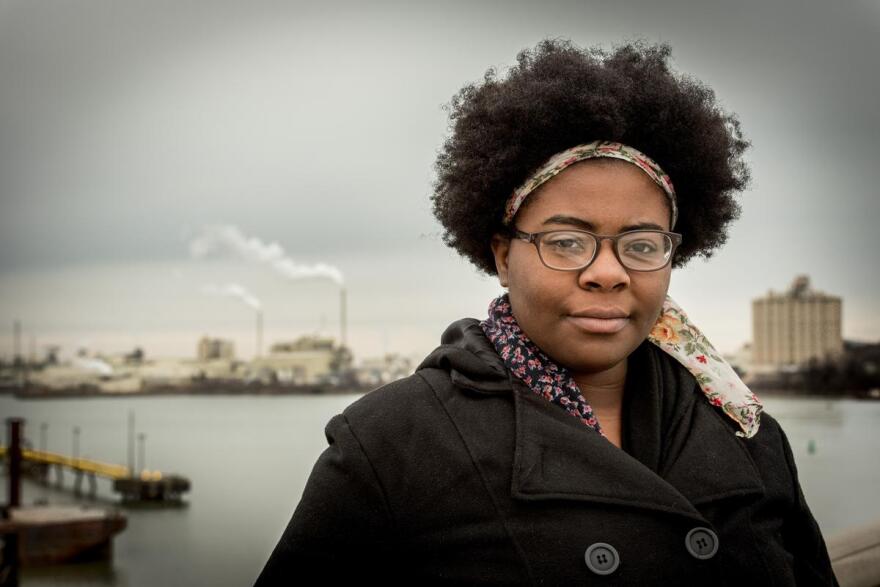This morning, we take a look at the successful, multi-year campaign to prevent a massive incinerator from being built in the South Baltimore neighborhood of Curtis Bay, and the young woman who was one of the leaders of that fight.
Destiny Watford was 16 years old when she started organizing against the incinerator that would have been built in her neighborhood and near her school. Destiny, now 20 years old and a student at Towson University, was awarded the prestigious Goldman Environmental Prize for her tireless campaign against the incinerator.
The Goldman award is a privately-funded global prize given each year to one person on each continent--Destiny was the winner for North America. The prize comes with more than international prestige. It also comes with a cash award of $175,000 to support her ongoing work. Destiny won the prize for her work with Free Your Voice, a grassroots, student organization formed to oppose construction of the incinerator in Curtis Bay, which, had it been built, reportedly would have been the largest incinerator in the nation.
Joining Destiny and Tom in the studio is Fern Shen, the founder, publisher and editor of the Baltimore Brew. She’s been writing about the incinerator project for the past six years.
Following the broadcast, we received an e-mailed statement from Cynthia Geshell, an executive assistant with New York-based Energy Answers, the company that was planning to build the incinerator. Here is the full text of that statement:
Just FYI in relationship to your story on Destiny Watford,
The project was permitted in 2010 and took a permit extension of 18 months to work on securing power and waste contracts (which lead to bank financing as this is a private venture and doesn’t rely on City or State funding). The historic drop in fossil fuel energy market prices has made the economics of the project more challenging and is the primary reason the construction financing was not achieved on schedule.
The CPCN is a multi‐departmental permit under the authority of the PSC and it has certain requirements for progress and construction activity. There has been documented construction performed at the environmentally sensitive project site over the past eighteen months in an effort to prepare it for the full construction effort and to meet the permit requirements. However, MDE has deemed that activity insufficient under the Clean Air Act. While we disagree with MDE’s decision, we appreciate their cooperation and support for the project and their recognition of the environmental benefits it offers Maryland.
It is important to note that MDE’s determination was based strictly on the perceived lapse in construction activity and not on any emissions or environmental violation of the permit provisions.
This story originally aired on May 16, 2016.





